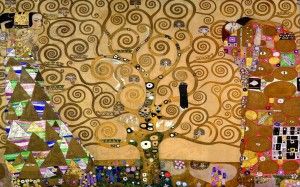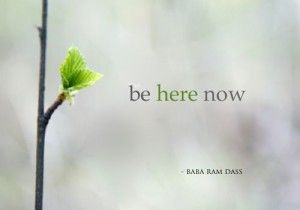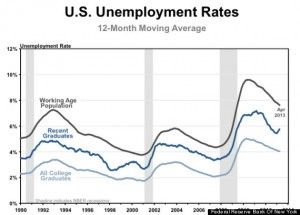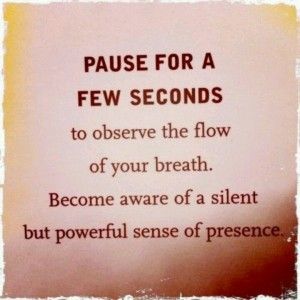Author Archives: blevine32
No Cars Here Since 1898
Meet Mackinac Island, where cars have been banned since 1898.
Located just offshore of mainland Michagan, in Lake Huron, Mackinac Island and its namesake city have long been a favorite spot for a relaxing getaway. So, when automobiles first began to arrive, loudly sputtering along the island’s once-quiet roadways, startling horses and spitting out smoke, it quickly became apparent to locals that this new invention was not for them.
Although the small island is home to only around 500 people, in the summer, that number swells to 15,000 during tourism season; aside from a couple of emergency vehicles, there’s nary a car to be seen. Transportation on Mackinac is limited to walking, horse-drawn carriages, and bicycling — a pleasant departure from the car-centric society that exists beyond its borders.
World’s Largest Building Opens
Located in Chengdu (population 14 million), capital of Sichuan province in southwestern China, the New Century Global Center is the “largest freestanding building in the world,” Chinese officials say.
http://www.cnn.com/2013/07/01/travel/china-largest-building-chengdu/index.html
The Power of Now
My favorite thought on the subject is from Eckhart Tolle in The Power of Now where he says: “Accept—then act. Whatever the present moment contains, accept it as if you had chosen it. Always work with it, not against it. Make it your friend and ally, not your enemy. This will miraculously transform your whole life.”
What’s stressing you out right now? Can you see how the suffering is the result of the gap between what you think *should* be happening vs. what is actually happening?
You want to close the pain-gap? Simple. Act as if you actually scripted the event to go just the way it is. Voilà! Pain vanishes.
Byron Katie tells us pretty much the same thing in Loving What Is: “The only time we suffer is when we believe a thought that argues with what is. When the mind is perfectly clear, what is is what we want.”
Via Brian Johnson and Entheos.com
7/1 Quote: John Steinbeck
“There are several kinds of love. One is a selfish, mean, grasping, egotistical thing which uses love for self-importance. This is the ugly and crippling kind. The other is an outpouring of everything good in you—of kindness and consideration and respect—not only the social respect of manners but the greater respect which is recognition of another person as unique and valuable. The first kind can make you sick and small and weak but the second can release in you strength, and courage and goodness and wisdom you didn’t know you had…”
~John Steinbeck
Seth Godin: Thinking About Money
Many marketers work overtime to confuse us about money. They take advantage of our misunderstanding of the time value of money, of our aversion to reading the fine print, of our childish need for instant gratification and most of all, our conflicted emotional connection to money.
Confusing customers about money can be quite profitable if that’s the sort of work you’re willing to do.
A few things to keep in mind:
- The amount of money you have has nothing to do with whether or not you’re a good person. Being good with money is a little like being good with cards. People who are good at playing cards aren’t better or worse than anyone else, they’re just better at playing crazy eights.
- Money spent on one thing is still the same as money spent on something else. A $500 needless fee on a million-dollar mortgage closing is just as much money as a $500 tip at McDonalds.
- If you borrow money to make money, you’ve done something magical. On the other hand, if you go into debt to pay your bills or buy something you want but don’t need, you’ve done something stupid. Stupid and short-sighted and ultimately life-changing for the worse.
- To go along with #3: getting out of debt as fast as you possibly can is the smartest thing you can do with your money. If you need proof to confirm this, ask anyone with money to show you the math. Hint: credit card companies make more profit than just about any other companies in the world.
- There’s no difference (in terms of the money you have) between spending money and not earning money, no difference between not-spending money and getting a raise (actually, because of taxes, you’re even better off not-spending). If you’ve got cable TV and a cell phone, you’re spending $4,000 a year. $6,000 before taxes.
- If money is an emotional issue for you, you’ve just put your finger on a big part of the problem. No one who is good at building houses has an emotional problem with hammers. Place your emotional problems where they belong, and focus on seeing money as a tool.
- Like many important, professional endeavors, money has its own vocabulary. It won’t take you long to learn what opportunity cost, investment, debt, leverage, basis points and sunk costs mean, but it’ll be worth your time.
- Never sign a contract or make an investment that you don’t understand at least as well as the person on the other side of the transaction.
- If you’ve got a job, a steady day job, now’s the time to figure out a way to earn extra income in your spare time. Freelancing, selling items on Etsy, building a side business–two hundred extra dollars every week for the next twenty years can create peace of mind for a lifetime.
- The chances that a small-time investor will get lucky by timing the stock market or with other opaque investments are slim, fat and none.
- The way you feel about giving money to good causes has a lot to do with the way you feel about money.
- Don’t get caught confusing money with security. There are lots of ways to build a life that’s more secure, starting with the stories you tell yourself, the people you surround yourself with and the cost of living you embrace. Money is one way to feel more secure, but money alone won’t deliver this.
- Rich guys busted for insider trading weren’t risking everything to make more money for the security that money can bring. In fact, the very opposite is starkly shown here. The insatiable need for more money is directly (and ironically) related to not being clear about what will ultimately bring security. Like many on this path, now they have neither money nor security.
- In our culture, making more money feels like winning, and winning feels like the point.
- Within very wide bands, more money doesn’t make people happier. Learning how to think about money, though, usually does.
- In the long run, doing work that’s important leads to more happiness than doing work that’s merely profitable.
Why Going to College Is Valuable In One Chart:
Mindfulness Meditation
Liz Kulze writes about Mindfulness Meditation in The Atlantic:
In a practical sense, “sitting” is really all there is to the meditation aspect of mindfulness meditation. For anywhere from fifteen minutes to an hour (or more) each day, whether alone or with a group, you sit in a quiet place with your eyes closed, focusing on your breath as it moves in and out. Your mind will inevitably wander, which is where the mindfulness aspect comes in. Instead of growing frustrated with your lack of focus or getting caught up in the web of your thoughts, you train yourself to observe the thought or emotion with acceptance and curiosity, and to calmly bring your focus back to the breath.
The process of achieving greater self-awareness, and therefore greater self-control, has three main phases: awareness of the mind, awareness of the body, and finally, a dissociation between thought and identity. In a culture that continually emphasizes the cultivation of the self, this may be the most profound lesson that mindfulness meditation has to offer. “According to the Justus Liebig-University and Harvard Medical School report, upon achieving a strong sense of internal awareness and the ability to ‘observe our mental processes with increasing clarity,’ we begin to see the self as something that is continually arising, rather than fixed.”







